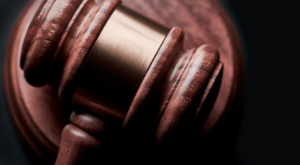 As part of the ongoing measures to slow the spread of COVID-19, Chief Justice of the Supreme Court of Georgia, the Honorable Harold D. Melton, recently filed a statewide judicial emergency.
As part of the ongoing measures to slow the spread of COVID-19, Chief Justice of the Supreme Court of Georgia, the Honorable Harold D. Melton, recently filed a statewide judicial emergency.
Here’s what it means for your case:
Social Distancing Measures
Our office remains fully functional. However, we are doing our best to work primarily from home to facilitate the CDC’s guidelines. This falls in line with other “social distancing” measures being implemented nationwide and means that we are reducing human-to-human interaction.
With that said, subject to courts being closed, we are fully functional and handling all day to day matters via video conferencing or phone. Our fully remote office still has access to all of the legal research pertaining to your case and will continue to provide top quality service to all clients.
Effects on Judicial Proceedings
Declaring a judicial state of emergency is a power of the State Supreme Court that isn’t taken lightly. It is only enacted when there is a major risk to the health, safety, and liberty of all citizens in this state of Georgia. Given the recent health crisis, it has been deemed one of the few times the State Supreme Court will exercise this power.
Effective from March 14 to April 13, 2020, at 11:59 p.m., this order asks the courts to focus their efforts only on the most essential functions.
Matters that should take priority are listed as the following:
- Events where an immediate liberty or safety concern is present requiring the attention of the court as soon as the court is available.
- Criminal court search warrants, arrest warrants, initial appearances, and bond reviews.
- Domestic abuse temporary protective orders and restraining orders.
- Juvenile court delinquency detention hearings and emergency removal matters.
- Mental health commitment hearings.
Any trials for which a criminal case has begun and a jury has already been assembled on or before Judge Melton’s announcement shall continue to conclusion unless there is good cause to suspend it or declare a mistrial. This decision rests with the judge presiding over the case. All court proceedings are also requested to be handled in a way that limits the risk of exposure, such as by video conference.
Relief From Deadlines
The announcement also affects individuals who are subject to court deadlines. As cited in the document, the Supreme Court hereby “suspends, tolls, extends, and otherwise grants relief from any deadlines or other time schedules or filing requirements imposed by otherwise applicable statutes, rules, regulations, or court orders, whether in civil or criminal cases or administrative matters, including, but not limited to” the following:
- Statute of limitation
- Time within which to issue a warrant
- Time within which to try a case for which a demand for speedy trial has been filed
- Time within which to hold a commitment hearing
- Deadline or other schedule regarding the detention of a juvenile
- Time within which to return a bill of indictment or an accusation or to bring a matter before a grand jury
- Time within which to file a writ of habeas corpus
- Time within which discovery or any aspect thereof is to be completed
- Time within which to serve a party
- Time within which to appeal or to seek the right to appeal any order, ruling, or other determination
- Such other legal proceedings as determined to be necessary by the authorized judicial official.
If it is necessary to extend the Judicial State of Emergency past the current timeline, “a determination of available alternative remedies for the conduct of court business will be made as necessary, and a corresponding order will be entered and distributed in accordance with Georgia law.”
Andersen, Tate & Carr, P.C. remains committed to its clients during the current public health crisis. Rest assured, Pat McDonough and Trinity Hundredmark are still fully available to address client needs help with cases as much as possible. We will be fully remote functioning until further notice. For more information, contact our law office at 1-770-822-0900.
